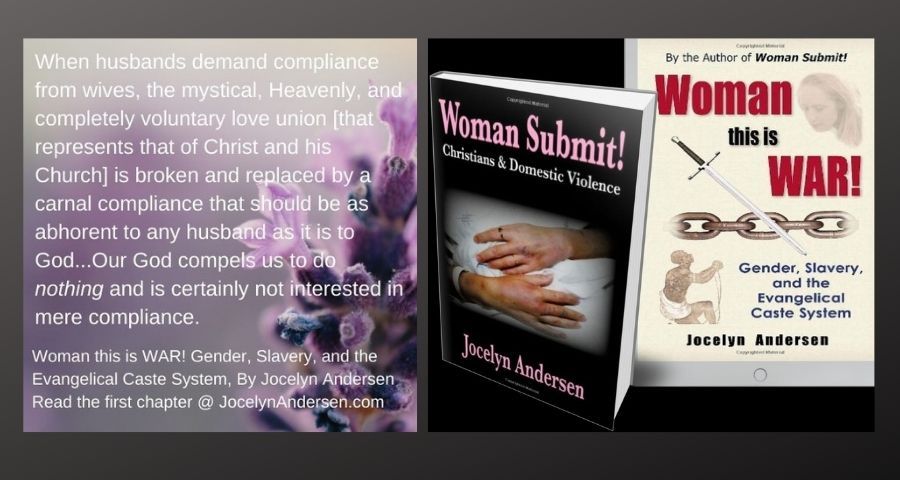2 Thessalonians 3:4: And we have
confidence in the Lord touching you that you both do and will do the things declared
[to] you[1] 5:
And the Lord direct your hearts into the love of God and into the patient
waiting for Christ
6: Now we charge you brethren in the name of our Lord Jesus Christ
withdraw yourselves from every brother adelphos:
fellow-believer whether male or female [who] walks
disorderly and not after the precepts which [were] received of us 7: For
yourselves know how you ought to imitate us for we behaved not ourselves
disorderly among you[3]
[1] The hierarchal flavor of 2 Thessalonians 3:4, [using the word "command"] in virtually all Bible versions, is
completely out of step with the message and tone of the New Testament as a whole.
The Greek word, paraggellō, must
be translated according to context, and the context in this verse, does not
permit the word to be translated as, “command.” The New Testament Church is not
a hierarchal organization but rather a living organism.
Members are bound by faith and love, first to God and then to one another—but not
by law (excepting the Law of Love).
The Old Covenant Priesthood was doomed under the reign of the Messiah,
and that is why the religious ruling hierarchy plotted to have Jesus put to
death. In a manner of speaking, organized religion hi-jacked Christianity early
on. Organizing into a religious hierarchy was the only way for men to wrest control
of the early Church away from the Holy Spirit, for where the Spirit of the Lord
is there is liberty.
Most Christian fellowships, today, understand this
and *would not dare "command" their members. Paul understood this as well. In
this verse (and others), The Greek word, paraggellō, in reference to Christian instruction, should be never be translated as command.
*They often resort to more subtle [psychological] methods, employing guilt and fear as methods of control.
[3] Second Thessalonians three verses four through seven, are examples of erroneous hierarchical filters through which even modern
translators view scripture texts. As we will show, it suits them to do so. This
commentary replaces hierarchical language with alternatives more in line with the
context. The hierarchical approach to New Testament Greek translation is
deceptive and detrimental in a number of ways: 1.) It demands the creation of organized religion and disregards
the voluntary nature of the love relationship that exists uniquely between
Christ and every individual believer, all of whom, together, compose His Church—which
is not an organization but rather a living organism. Does this
mean Christians should not form church fellowships? Of course not. But it does
mean that extreme care must be taken to not to violate the voluntary, and very
personal nature of the, relationship between believers and their Savior. Christian
leaders are called to be examples and shepherds—never commanders 2.)
Hierarchy benefits organized religion by giving clergy undue control over laity.
Depending on where one lives, this can take [and has taken] the form of governmental control, where the law of the land cannot be separated from the law of the
church. This has happened under both Roman and Greek Orthodox Catholicism and Protestant reformers. Even
without governmental controls to enforce “Christianity,” hierarchical organized
religion, wields undo emotional influence over believers, which often translates
[through guilt and fear] into physical influence. Jesus, our ultimate example
of non-organized, non-hierarchical, religion, had serious words to say about the
concept of clergy over laity being put into practice within His Church. He said he hated it Revelation 2:6. 3.) Early on, organized religion [which
of necessity must be hierarchical], marginalized the ministries and contributions
of emancipated New Covenant women. Joel chapter two foretold the emancipation
of God’s daughters, and Peter announced the fulfillment of this prophecy in Acts chapter
two. Hierarchical organized religion was an absolute necessity in order to bring emancipated Christian
women back under the complete control of men. This latter goal, that of male
headship, is still so strong today, that within mainstream Christianity, even
the Eternal Godhead has been turned into a hierarchal triad, with the express
goal of putting [and keeping] women in eternal subjection to men. Hierarchical language, used in reference to
the relationships between members of the Body of Christ, must be rejected.
Compulsion and autonomy are mutually exclusive, and attempts the blend the two—in
any manner—are oxymoronic.

